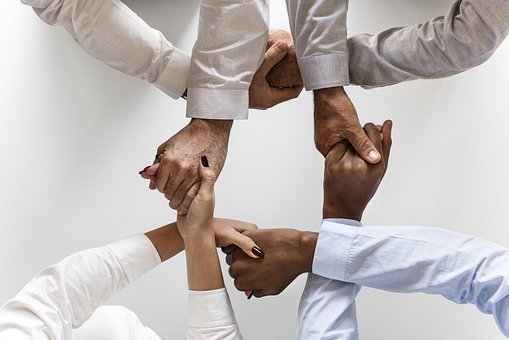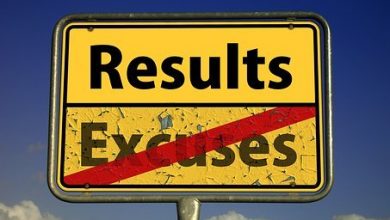Diversity, Equality and Inclusion – A Transformative Power

In an increasingly interconnected world, the transformative power of DEI cannot be overstated. More than just being corporate buzzwords, these principles have the potential to reshape societies, organizations, and individual lives. At its heart, Diversity, Equality and Inclusion represents a commitment to celebrating human experiences and perspectives.
But what exactly is DEI, how can we define and measure it, and why has it become increasingly relevant in today’s workplace environment? To address these points, let’s first break up DEI into its distinctive three pillars.
Defining DEI: The Three Pillars
Creating a culture that prioritises employee satisfaction is key to success. Yet, alongside this there is another equally compelling imperative – understanding the three pillars which make up DEI and how they form the bedrock of a forward-thinking organisation.
- Diversity encompasses the rich tapestry of demographics, backgrounds, and characteristics that individuals bring to the workplace. It includes factors such as race, gender, age, sexual orientation, abilities, and socio-economic status. Embracing diversity involves recognizing and celebrating these distinctions.
- Equality ensures that every individual, regardless of their unique background, enjoys equal access to opportunities, rights, and resources within the organization. It seeks to eliminate discrimination and level the playing field, creating an environment of fairness.
- Inclusion goes beyond mere representation. It is the act of creating an inclusive workplace where diverse individuals feel valued, respected, and empowered to contribute their unique perspectives. Inclusion creates a sense of belonging, where every employee feels that they matter and their contribution is worthy.
The Relevance of DEI in a modern workplace environment
Diversity, Equality and Inclusion has gained unprecented significance in today’s workplace. This has been driven by several compelling factors:
Changing Demographics: The world’s population has become increasingly diverse. This means that organisations need to adapt and cater to the individual needs and preference of a wide range of stakeholders.
Legal and Ethical Imperatives: Regulatory legislation now mandates that organisations must actively combat discrimination. Ethical considerations further underscore the significance of DEI.
Innovation and Creativity: Diverse teams stimulate innovation as varying viewpoints drive creativity and fresh approaches to problem-solving.
Talent Attraction and Retention: In a fiercely competitive job market, organisations which prioritise DEI are more likely to attract and retain top talent, thereby enhancing their competitiveness.
Reputation and Brand Image: Companies that champion DEI often gain a competitive edge by aligning with the values of their customers, enhancing their reputation and brand image.
Championing Diversity, Equality and Inclusion
As we’ve seen, diversity isn’t just about checking boxes on demographic forms; it’s about recognising and valuing the unique backgrounds, experiences, and ideas that individuals bring to the table. When harnessed effectively, this diversity becomes a hub of innovation. Diverse teams are more likely to produce creative solutions and better adapt to the ever-evolving landscape of business and society.
Creating equality means dismantling the barriers that have historically prevented marginalised groups from achieving their full potential. It involves rectifying wage disparities, ensuring equal access to opportunities, and that workplace environments offer everyone a chance to succeed. Equality is about levelling the playing field for all.
Inclusion goes beyond mere representation. It’s about creating spaces where individuals from all walks of life feel a genuine sense of belonging. Inclusive environments encourage people to share their unique perspectives without fear of discrimination or exclusion. When individuals feel valued and respected, they’re more likely to engage in open dialogue, leading to greater collaboration and more effective problem-solving.
Metrics and Strategies for DEI Implementation
Measuring DEI is paramount for progress. By examining representation, pay equity, employee perception through surveys, leadership diversity, attrition rates, and promotion rates, organisations can pinpoint areas that require improvement and track the effectiveness of their initiatives.
At a corporate level, it’s crucial for leadership to lead by example. Commitment to DEI should be demonstrated through clear goals, resource allocation, and regular policy reviews. Companies should invest in DEI training, ensuring that all employees, from the top down, understand its importance and how to contribute.
From an employee perspective education and awareness are key. DEI workshops and training programmes can help employees recognise biases, understand privilege, and practice inclusive communication. Mentorship and sponsorship programmes can provide underrepresented employees with the support needed to advance their careers. Employee resource groups offer a platform for marginalised voices to be heard, fostering a sense of community.
The Timeliness of DEI: Addressing Current Challenges
The urgency of DEI becomes apparent when we consider the contemporary challenges we face. As the workforce becomes increasingly diverse, especially with younger generations entering, the demand for inclusive workplaces has grown significantly. These generations come equipped with a heightened sense of social justice and inclusivity, making DEI a top priority in their career choices.
Globalisation has blurred borders, leading companies to operate in culturally diverse markets. DEI is no longer just a nicety but a necessity for building trust and understanding with international stakeholders. Movements like #MeToo and Black Lives Matter have cast a spotlight on inequalities and discrimination, prompting discussions and activism.
Furthermore, legal actions and ethical expectations now hold companies accountable for their DEI practices. This has elevated DEI from a moral imperative to a legal and reputational one, driving organisations to take proactive steps towards creating more inclusive workplaces.
The Broad Impact of DEI
DEI isn’t just about benefiting one group; it’s about creating a rising tide that lifts everyone Inclusive workplaces lead to higher job satisfaction, increased innovation, and better talent retention, benefiting both employees and companies.
From a societal perspective, DEI is a powerful force in combating inequality and discrimination, thereby instilling social harmony and cohesion. It’s a step toward realising a more equal society where everyone has an opportunity to thrive.
In addition, DEI should be closely interwoven with environmental, social and governance principles (ESG). Organisations which go the extra mile to prioritise DEI demonstrate their commitment to social responsibility, which in turn can significantly enhance their ESG ratings and reputation. Effective DEI should lead to more diverse Boards and leadership teams, promoting better decision-making and long-term sustainability.
A Brighter, Fairer and More Inclusive Future
In a rapidly evolving world, DEI stands as a beacon of progress, offering a path toward a fairer, more inclusive, and sustainable future. By championing Diversity, Equality, and Inclusion, we not only enrich our workplaces and organisations, but also contribute to the broader goal of building a more equitable and harmonious society for all.
In its ability to transform, Diversity, Equality, and Inclusion (DEI) are catalysts for profound societal change. They have the power to bridge divides, challenge biases, and create a world where the unique strengths of every individual are celebrated. DEI’s transformative potential is not limited to Boardrooms and workplaces. It extends to every corner of our global community, inspiring a future where diversity is embraced, equality is a given, and inclusion is the norm.
As we harness the transformative energy of DEI, we embark on a journey toward a brighter, fairer, and more harmonious world for generations to come.



